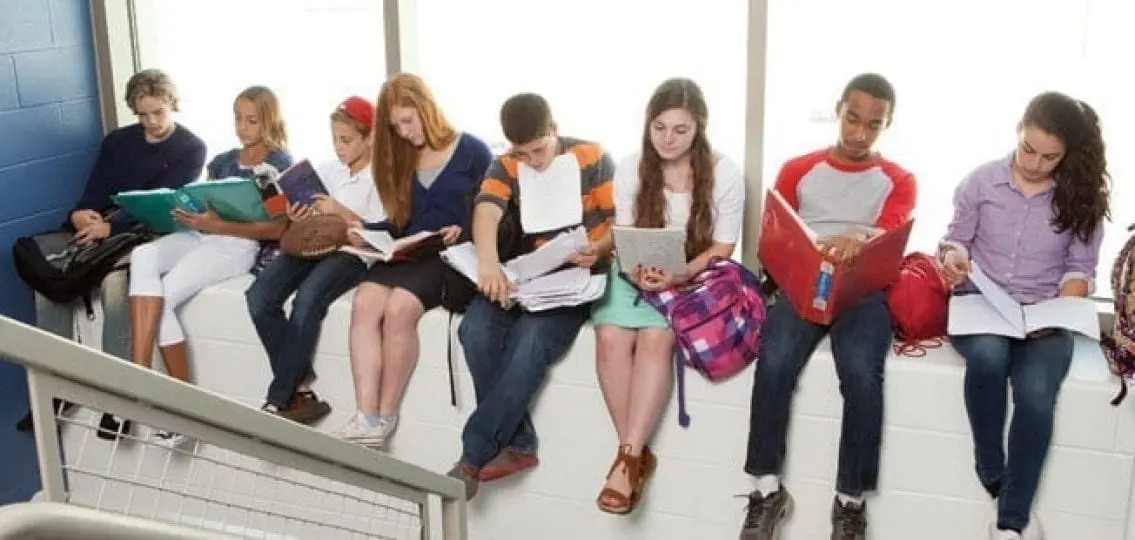Next year my twins will be entering the ninth grade and starting their first year of high school. It won’t be long before we’re thinking about college, and their grades—as well as the high school they attend—will be factors that college admission committees consider. With all of this in mind, my husband and I are looking at the options available to our son and daughter for high school so we can choose the best school for them.

I attended a traditional public high school, but my husband went to a public magnet high school after attending private elementary and middle schools. We both feel that we received a good education in preparation for college, but our different backgrounds led to a discussion about what would be best for our kids. We’ve even considered whether they should attend the same school since they have such different needs and personalities. Before we are able to answer those questions, we needed to research all of the possibilities.
How to Choose a High School: 3 High School Options
1. Public:
Public schools offer free education to students living within the district. The funding for public schools is from local, state, and federal tax dollars and these schools are supervised by local government authorities. Under the public school umbrella, there are additional options such as school choice, vouchers, tax-credit scholarships, magnet, and charter schools.
There are several choices within the public school system as well.
Public School Options Include:
- School Choice: Some public school districts offer school choice, which means you can attend a school outside of your district. There is no tuition to pay, but you usually provide your own transportation. Most schools have a limited number of openings and students are selected based on a lottery system.
- Vouchers: Vouchers work as a type of school choice. Currently, twelve states and Washington DC have voucher programs. Financial vouchers are issued to students who can then use the money to pay for private school tuition. The amount of money received through a voucher varies by state and may cover part or all of the private school tuition.
- Magnet: Magnet schools are highly selective and competitive public schools. There is no tuition, but students must submit applications and complete tests to be accepted into a magnet school.
- Charter: Charter schools are tuition-free public schools which are independently run by teachers, parents, community leaders, and businesses. Charter schools do not adhere to the same rules and regulations as a traditional public school. These schools receive funding from the referring public school, as well as from state and federal grants, and private fundraising.
- Vocational Schools: Vocational schools are tuition-free public high schools that offer specific trade or career training programs. Traditionally, programs in vocational schools have focused on areas of interest such as mechanics, carpentry, plumbing, and construction. Some vocational schools have additional programs such as engineering, performing arts and nursing.
2. Private:
A student must submit an application and pay tuition in order to attend a private school. Private schools are funded by student tuition payments, endowments, grants, and donations. Some private schools are affiliated with a particular religion and many of them are academically competitive. Many also offer scholarship opportunities.
Seventeen states offer tax-credit scholarships that enable people and businesses to pay some of their state taxes to private nonprofit scholarship-granting organizations that issue scholarships to K-12 students. Similar to vouchers, students use tax-credit scholarships to pay for private school tuition.
3. Home school:
Homeschooling, or home education, refers to a parent, tutor, or homeschool group educating a student at home. Another option is an online program. Homeschool regulations and requirements vary by state.
5 Factors in Choosing A High School:
1. Cost:
Private high school tuition averages around $14,000 a year nationally, which can limit many families to public school options. Vouchers or the tax-credit scholarships can be used to help fund private school tuition. At both private and public schools, additional costs may include transportation, uniforms and extracurricular fees.
2. School size:
Private schools are often smaller with a smaller student to teacher ratio, which can contribute to a better learning environment for students.
3. Your child’s learning style:
Hands-on learners may benefit from attending a vocational, charter, or other less traditional public school. A teen who thrives on competition and educational challenges might benefit from attending a competitive magnet school.
4. Social environment and extracurricular options:
Friendships are a key component in helping teens develop their identity. The clubs, sports and other after school activities they participate in can contribute to building life-long friendships. Considering any new school should involve a visit for the teen to see how they interact with the other students.
5. School reputation:
Factors to consider when evaluating a particular school’s reputation include the school’s graduation rate, spending per pupil, and college readiness. Websites that review these factors include US News and World Report, GreatSchools.org, and The National Assessment of Educational Progress (NAEP).

After my twins receive their grades this year, we will decide if their learning environment is meeting all of their educational needs. We’ll consider the various factors involved in providing them with the best education possible and visit other schools in the area to compare options. We’ll also ask our kids for feedback about what type of school they would most prefer. Because we’re actively involved in making sure they receive the best education for their needs and interests, I’m hopeful that whatever choice we make will help prepare them for college and the workforce.




